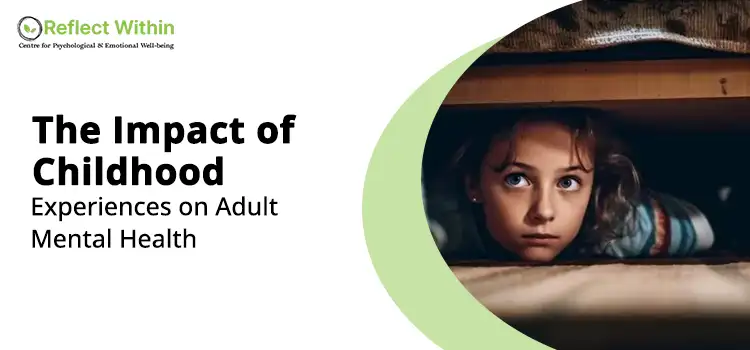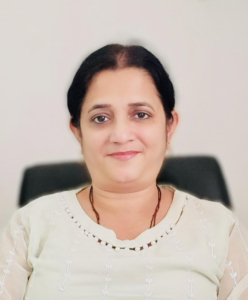The Impact of Childhood Experiences on Adult Mental Health

A grown-up adult is the reflection of their childhood experiences. Childhood is like an unbaked clay pot you can carve into any shape. Similarly, childhood is the time when the experiences and traumas shape their forthcoming adulthood. In fact, they will remain with you the entire life.
God forbid, if they are bad experiences, such as neglect, trauma, or abuse, can cause a variety of mental health disorders. The list may include depression, anxiety, post-traumatic stress disorder (PTSD), and several others. However, the effects can be alleviated or tamed with the right therapy from a psychologist.
Adverse Childhood Experiences (ACE) – An Overview
First things first, it is crucial to understand what adverse childhood experiences are. They are potentially traumatic events that have tormenting effects on physical and mental health. ACEs generally include abuse, violence, negligence, or growing up in a family with mental health or substance use problems.
It can lead to toxic stress and depression and subsequently affects brain development and its response to the stress. Furthermore, Adverse Childhood Experiences or childhood trauma can also give rise to mental illness, chronic health issues, and substance abuse in adults.
Symptoms Of Adverse Childhood Experiences In Adults
There are people around us who look normal but are dealing with the aftermaths of adverse childhood experiences throughout their lives. It is hard to recognize sometimes, or you may feel that something is not right with the person, but people ignore the need for a professional’s assistance. It is because perhaps the symptoms are not very apparent. However, you can determine it by keeping an eye on the following symptoms:
1: Anxiety
Adults who have suffered traumatic childhoods often have high levels of anxiety. Sometimes, it becomes difficult for them to cope with the anxiety, and the problem becomes evident in their day-to-day behavior.
2: Cognitive Distortions
Cognitive disorder is a biased thinking pattern that affects a person’s ability to view reality as it is, but mostly in a negative way. In simple words, it can be perceived as a thinking error that makes your interpretation negatively biased.
3: Post-Traumatic Stress Disorder (PTSD)
PTSD is a condition wherein adults who suffered traumatic events in their childhood get a constant sense of danger and often get nightmares and flashbacks of their adverse memories.
4: Depression
Depression is a state that gives rise to a persistent feeling of sadness, and the person feels dejected or down most of the time.
5: Difficulty Forming Relationships
Traumatic childhood experiences have their worst effects on the person’s social life and often make them anti-social. They find it difficult to form healthy relationships due to the fear of being hurt and trust issues.
6: Physical Health Problems
The effects of adverse childhood experiences are not limited to mental disorders; they also affect the person at the physical level. Some of these aftermaths are chronic heart disease, diabetes, and autoimmune diseases.
7: Substance Abuse
Substance abuse in adults with traumatic pasts is their way to deal with the unresolved issues they are still living in their heads.
8: Sleep Disorders
Sleep disorders, such as insomnia or nightmares, are also commonly seen in adults who suffer adverse childhood experiences.
9: Emotional Regulation Issues
Adults with traumatic childhood may find it difficult to regulate their emotions. They often deal with emotional outbursts, inability to identify their emotional state, or long persistent state of being upset.
10: Dissociation
Dissociation is the feeling of disinterest or a period of disassociation wherein the person feels disconnected from self or their outer world.
11: Low Self-Esteem
Low self-esteem is also one of the psychological disorders caused by a traumatic childhood, which causes a person to lack confidence about who they are or what they can accomplish.
How To Deal With This Situation?
Now that you know the impact of childhood experiences on adult mental health, let’s discuss the practices that can alleviate this condition among children and help them thrive as an adult:
1: Raising Awareness About ACEs Can Help
Awareness is the key to reducing the instances of adverse childhood experiences. When people know about the long-term effects of a tormented childhood, they will take it seriously. Besides this, it is more of a community’s responsibility rather than an individual’s job to bring the change.
- The negative beliefs or attitudes toward seeking professional help for substance misuse, depression, or anxiety should be brought to an end.
- Parents must ensure a safe and nurturing environment for their young ones to protect them from getting exposed to trauma and other horrific experiences.
2 : The Role of Therapy in Overcoming Childhood Trauma
Ensuring a thriving childhood for every single child is a long and gradual process and can’t be achieved overnight. However, therapy can play a vital role in alleviating the signs of ACEs among adults, especially psychodynamic therapy. It helps adults understand how their traumatic childhood experiences are impacting their current emotional state and behavior.
It provides them with an insight into their unconscious minds and thoughts that are affecting their personal and social life. By understanding their trauma and triggers, they can develop mindfulness and coping mechanisms to deal with their negative thoughts, emotions, and behavioral patterns.
Reflect Within offers in-person and online consultation to people who are dealing with mental disorders, such as chronic stress, depression, anxiety, and several others, for their mental and emotional well-being.
Latest Post
Categories
Book Session

















